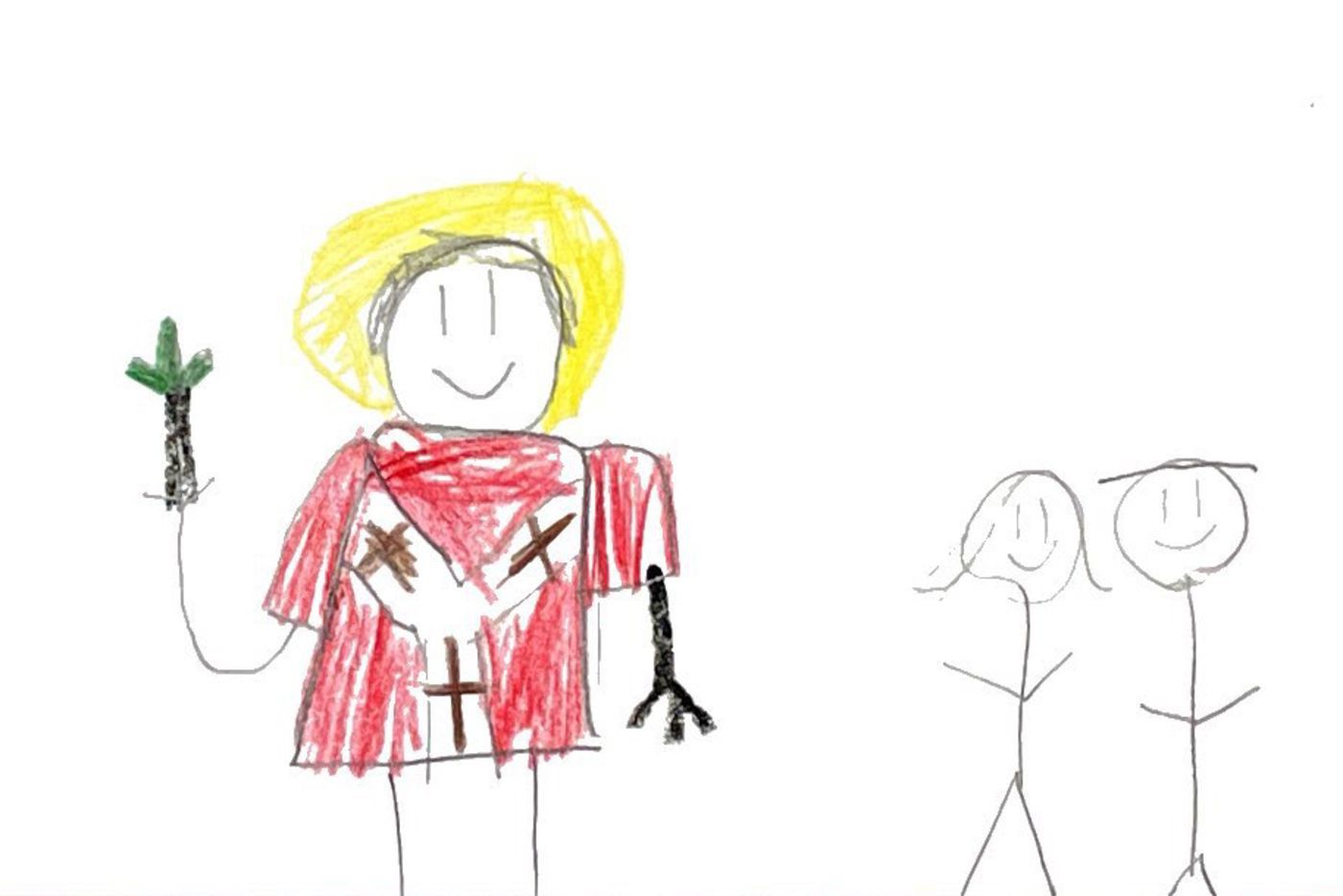Halo again! Students’ saintly role models, part 2

Staff Reports, Catholic Standard
November 10, 2022
For the November Junior Saints children's section of the Catholic Standard website, students were invited to draw a picture and write about their favorite saint.
“My favorite saint is St. Peter because he was the first pope.” – Hank Schwartz, first grade, St. Peter School, Capitol Hill
“My favorite saint is St. Patrick because he taught the people of Ireland about God.” – Artwork and writing by Nora Perez, first grade, St. Peter School, Capitol Hill
“My favorite saint is St. John the Baptist because he baptized Jesus.” – Brooks Edwards, first grade, St. Peter School, Capitol Hill
“My favorite saint is St. John the Baptist because he prepared people for the coming of Jesus.” – Artwork and writing by Alexandra Smith, first grade, St. Peter School, Capitol Hill
“My favorite saint is St. Anne because she is the mother of Mary.” – Artwork and writing by Stewart Gilbride, first grade, St. Peter School, Capitol Hill
“My favorite saint is St. Nicholas because he saved a poor father and his three daughters by giving them gold in a bag.” – Artwork and writing by Anastasia Chan, first grade, St. Peter School, Capitol Hill
“My favorite saint is St. Clare because she followed St. Francis of Assisi.” – Artwork and writing by Margot Guinan, first grade, St. Peter School, Capitol Hill
View here: https://cathstan.org/news/junior-saints/halo-again-students-saintly-role-models-part-2



St. Peter School, Capitol Hill
422 Third Street SE
Washington, DC 20003
Phone:
(202) 544-1618
Fax: (202) 547-5101

